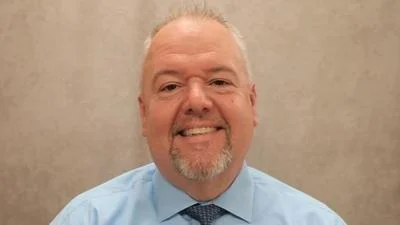All but one member of the Senate Executive Committee lawmaker approved a homestead exemption for disabled first responders at the panel's hearing April 11.
SB3197, sponsored by Sen. John Mulroe (D-Chicago), provides a $5,000 homestead exemption for disabled police officers, first responders and firefighters on the equalized assessed value of their residential property.
“It’s not a great ask,” Mulroe said of the bill he said was inspired after the death of Chicago Police Cmdr. Paul Bauer, who was killed in March by a four-time felon in Chicago. “$5,000 in exemption is probably equivalent to an 8 percent tax rate of $400 dollars that will be redistributed to other real estate tax payers, but I am willing to do that ... for the additional burden of the sacrifices for people who serve us every day.”
Sen. John Mulroe (D-Chicago)
Jim Mullen a disabled Chicago police officer who became quadriplegic in 1996 after he was shot, told the committee that his injury is not something anyone could plan for or fathom.
“It’s been a difficult and devasting injury for me and my family and for a lot of other first responders,” Mullen said.
Sen. Jim Oberweis (R-Sugar Grove) thanked Mullen for the commitment and risks he has taken in his service to public, and he admitted it was tough for him to say no to the bill.
“I will be a 'no' vote solely because I believe strongly against creating special legislation for one group of people that the other group of people who have no say in it have to pay for,” Oberweis said. “I understand the senator bringing the bill forward, and it is very hard not to support the bill, but I have a deep philosophical problem with that type of legislation.”
Mulroe said he understands Oberweis’ concerns, and then he reminded the committee members this was the first type of bill “like this” that he has brought before them.
“There are exceptions to everything and I think this is a worthy exception to the rule,” Mulroe said.
Sen. Sue Rezin (R-Morris), who also thanked Mullen for his service and thanked Mulroe for bringing SB3197 forward, queried the legislation.
“I am curious, do you have any idea how many people would be affected by your bill,” Rezin asked. “If you could just give us a ballpark.”
Mukroe did not cite a specific number but said that in Chicago there are 14 disabled officers such as Mullen.
“Again, I appreciate your testimony and I will be supporting the bill,” Rezin said.
Sen. Dave Syverson (R-Rockford) thanked Mullen for his service and said he too would vote for the bill; however he questioned Mulroe about any type of asset test being available to determine disabled officers’ income.
“Especially those with a higher income or those who have received significant settlements and this is not going to be a difference,” Syverson said.
There is no asset test for the exemption, according to Mulroe, who said in the case of Mullen, who must receive constant care, an exemption is needed.
“Some do have those higher resources and we may be giving exemptions to people who don’t really need it, which actually we could use those dollars to help others do more,” Syverson said, adding Mulroe may want to consider adding an asset test to the legislation.
Mulroe said he would commit to finding out if any officer that would receive the rebate is in fact receiving additional funds that would make the exemption unfairly appropriated.
“My gut is telling me it’s designed for specific purposes and this is our way of giving a little help to show we appreciate their sacrifice and service,” Mulroe said.
SB3197 was passed 16-1 by the panel and will be presented on the Senate floor.
.jpg)






 Alerts Sign-up
Alerts Sign-up